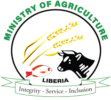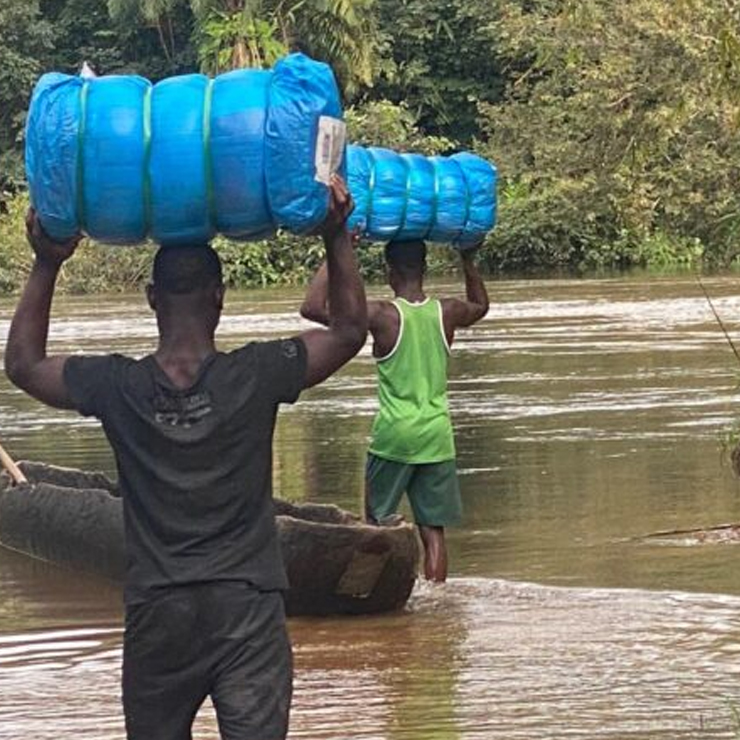

Health Supply Chain Management (Distribution of Drugs/Heath Commodities in the Fifteen Counties of Liberia
USAID/Chemonics
Year April 2023-December 2025
Background
The USAID Global Health Supply Chain Program-Procurement and Supply Management (GHSC-PSM) project, implemented by Chemonics International in Liberia, has as a primary purpose ensuring the uninterrupted supply of health commodities under USG-funded public health initiatives. The project provides direct procurement and supply chain management support to the President’s Emergency Plan for AIDS Relief (PEPFAR), the President’s Malaria Initiative (PMI), and Population and Reproductive Health. In Liberia, GHSC-PSM works closely with the Ministry of Health (MOH) at the central, county, and local level; and the Central Medical Stores (CMS) to facilitate the distribution of commodities unto the last mile at the health facilities and points of distribution to the patient. Distributions are cyclical in nature, with approximately four rounds of delivery taking place per year to l3 counties. As part of project activities, the GHSC-PSM requires the purchase of third-party logistics (3PL) services to oversee the safe and timely delivery of the commodities. The purpose of this RFP is to solicit quotations for these services.
Chemonics is seeking a top notch service provider with a strong background in transportation of high value health commodities and the capacity to achieve industry standard performance indicators for shipping and order accuracy. Chemonics seeks to partner with best-in-class service provider(s) with: a strong background in cold chain and non-cold chain transportation of high value commodities, the capacity to achieve industry standard performance indicators for shipping and order accuracy, and the ability to scale its operational capacity to meet the growing needs of Chemonics’ local counterparts in Liberia.
The purpose of this RFP is to solicit quotations from eligible suppliers for as-needed, ad hoc distribution orders. As a result of this RFP, the GHSC-PSM project in Liberia anticipates issuing a Fixed Unit Price (FUP) Agreement or possibly multiple FUP Agreements—to establish specific pricing levels and parameters for ordering these commodities/services. This will allow the GHSC-PSM project in Liberia to issue specific orders, on an as-needed basis and within a distribution ceiling, for the procurement of these services over the next 12 months. The Supplier shall furnish the supplies/services described in any purchase orders issued by Chemonics under this Agreement. Chemonics is only obligated to pay for supplies/services ordered through orders issued under this Agreement and delivered by the 3PL in accordance with the terms/conditions of the Agreement.
In April 2015, USAID announced a new approach to purchasing and distributing life-saving medicine and health supplies funded through its USAID Global Health programs in support of HIV/AIDS, Malaria, and Reproductive Health. USAID awarded the Global Health Supply Chain Program– Procurement and Supply Management project (GHSC-PSM) to Chemonics International, Inc, as the lead contractor. An official program of USAID, GHSC-PSM’s goal is to ensure uninterrupted supplies of health commodities in support of United States Government (USG)-funded public health initiatives around the world, including Liberia. Chemonics International Inc is implementing GHSC-PSM in Liberia.
The purpose of this RFP is to solicit proposals for transportation of health commodities that require a) cold chain and/or b) non-cold chain transportation services for temperature sensitive pharmaceuticals, laboratory reagents/consumables, non- medical consumables and other health products in Liberia. The selected subcontractor(s) will be required to facilitate transportation of these health products and other items from the Central Medicine Stores warehouse located in Caldwell, Monrovia to over 871 Service Delivery Points (SDPs) in the designated routes/zones of all 15 counties in Liberia, as stipulated every week or at other intervals as specified by GHSC-PSM in Liberia.
Chemonics seeks to partner with best-in-class service provider(s) with: a strong background in cold chain and non-cold chain transportation of high value commodities, the capacity to achieve industry standard performance indicators for shipping and order accuracy, and the ability to scale its operational capacity to meet the growing needs of Chemonics’ local counterparts in Liberia.
The contract(s) awarded will be an indefinite quantity subcontract utilizing firm fixed unit prices for delivery locations in Liberia and the volume of goods to be delivered to those locations. Task Orders will be placed for required transportation and delivery services under the subcontract. The awarded subcontract will include a statement of the ceiling price, the scope of work, Chemonics standard terms and conditions, the guiding Federal Acquisition Regulation (FAR) and U.S. Agency for International Development (USAID) clauses, and invoicing information.
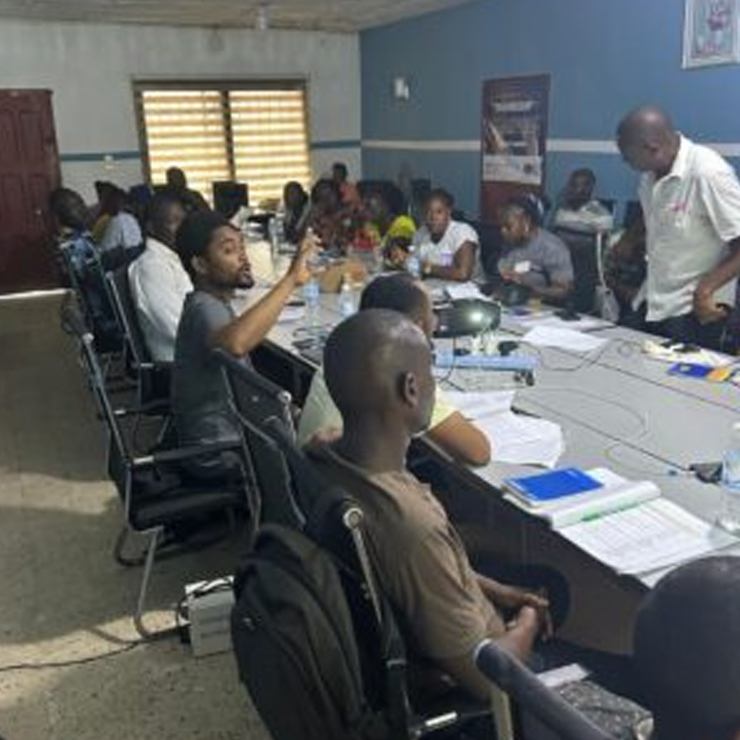
Quantitative and Qualitative Study on Child Labor in the Cocoa Value Chain Liberia Ministry of Agriculture/IFAD
Year: October-January 2025
Background
Currently, the International Fund for Agricultural Development (IFAD) portfolio in Liberia includes four (4) ongoing projects: (i) The Tree Crop Extension Project (TCEP); (ii) The Tree Crop Extension Project II (TCEP-II); and (iii) The Building Climate Resilence Project (BCRP).
The Tree Crops Extension Project (TCEP). TCEP is designed to reach 11,000 beneficiaries including
8,000 smallholder cocoa producers who are members of kuu groups and Farmer Field Schools (FFS); 2,400 farmers who will benefit from access to roads, input supply and market linkages and 600 farmers who will benefit as a result of job creation along the value chain. The objective of the project is to improve incomes and climate change resilience of smallholder cocoa producers, particularly womenheaded households, youths and Farmers Based Organizations (FBOs). The project is being implemented in eight (8) districts in Nimba County over a period of six (6) years. The project will adopt a value chain approach to link cocoa farmers, organized at grassroots level in traditional community-based labor groups and FFS, to markets and services through cooperatives and Private Sector Partners (PSPs).
The Tree Crops Extension Project II (TCEP-II). TCEP-II is designed to benefit about 15,000 households of which 10,000 households will be smallholder cocoa farmers and the remaining 5,000 rural households will benefit from improved roads, input supplies, market linkages and spillover effects along the value chain. The development objective is to improve the incomes and climate change resilience of smallholder cocoa producers in Lofa county. The project financing is being implemented in seven (7) districts in Lofa County over a period of six (6) years with the possibility to include areas in other counties with comparable socio-economic and agronomic conditions. The project will also adopt a value chain approach to link cocoa farmers, organized at grassroots level in traditional communitybased labor groups and Farmers Field Schools (FFS), to markets and services through cooperatives and Private Sector Partners (PSPs) building on the achievements and lessons learnt from the IFAD cofinanced Smallholder Tree Crops Rehabilitation Support Project (STCRSP).
The Building Climate Resilience Project (BCRP) is designed to reach 25,000 smallholder farmers including 10,000 rice producers, 10,000 cocoa producers and 5,000 smallholder farmers from other enterprises of which at least 40% will be women and 40% young people. The goal of the project is that livelihoods and climate change resilience of rural farming households in Bong, Lofa and Nimba Counties are improved. The project development objective (PDO) is to promote agriculture as a business for enhanced incomes and reduced rural poverty in the counties.
Issue of Child Labor
According to the International Labor Organization (ILO),[1] child labor refers to work that (i) is mentally, physically, socially, and morally dangerous and harmful to children; and (ii) interferes with their schooling by depriving them of the opportunity to attend school, by obliging them to leave school prematurely, or by requiring them to attempt to combine school attendance with excessively long and heavy work. The worst forms of child labor (WFCL) is defined (by ILO Convention 182) to include all forms of slavery or practices similar to slavery (the sale and trafficking of children, debt bondage and serfdom, forced or compulsory labor including recruitment for use in armed conflict); the use or offering of a child for prostitution and/or pornography, illicit activities including the production and trafficking of drugs; as well as work which when performed is likely to harm the health, safety or morals of the child (as determined by national authorities).
It is essential to stress while considering child labor issues within the African context, that not all work by children is child labor. The ILO elaborates and clarifies that child labor is not the participation of a child in work that does not affect his/her health and personal development or interferes with his/her schooling. Such work “includes activities such as helping their parents care for the home and the family, assisting in a family business or earning pocket money outside school hours and during school holidays”. It includes also work that “contributes to children’s development and to the welfare of their families; provides them with skills, attitudes and experience, and helps to prepare them to be useful and productive members of society during their adult life” (ILO, 2002).
The ILO estimated 218 million child laborers from 5-17 years old globally, of which an estimated 70% are working in agriculture. These children work on small family farms or large plantations, caring for domestic animals, weeding, harvesting, etc. A countless number of these children are missing out on school, and many are regularly exposed to serious hazards and exploitation. The extent to which agricultural work is harmful to children depends on a number of factors, including the type of work they do, the hours they work, their age and their access to education. It also depends on whether or not they are separated from their families for long periods and the degree to which they are exposed to specific hazards. Children who work on family farms – which characterize most child agricultural workers – are by no means immune to the many hazards associated with agriculture. The problems related to agricultural child labor are particularly acute in sub-Saharan Africa, where nearly 30% of all children under the age of 15 are working. International media attention at the beginning of the decade on the use of child labor in cocoa farming in West Africa under appalling conditions placed a glaring spotlight on just how harmful and hazardous agricultural work can be for children, particularly in areas of extreme rural poverty (ILO, 2000).
In Liberia approximately 16.6% of children are employed. Of this 16.6%, 78.4% work in the agricultural field. Work in agriculture includes work in rubber and charcoal production, and farming including the cocoa, rice, cassava, and coffee production. Some work in all these industries is deemed hazardous (U.S. Department of Labor).
Convention No. 182 of the ILO requires countries to take immediate, effective, and time-bound measures to eliminate the worst forms of child labor as a matter of urgency. Recommendation No. 190 of June 1999 also recommends that any definition of “hazardous work” should include: work which exposes children to physical, psychological, or sexual abuse; work underground, underwater, at dangerous heights, or in confined spaces; work with dangerous machinery, equipment, and tools or carrying heavy loads; exposure to hazardous substances, agents or processes, or to temperatures, noise levels or vibrations damaging to health; work for long hours, night work, and unreasonable confinement to the premises of the employer.
Consistent with the International Labor Organization (ILO) standards related to child labor, the project will integrate measures to avoid child labor use by project beneficiaries in cocoa farming. Measures will include community sensitization as well as integration into the project´s social mentoring package.
[1] International Labor Organization (ILO) (2002). Eliminating the Worst Forms of Child Labor: A Practical Guide to ILO Convention No. 182. Handbook for Parliamentarians No. 3, 2002. ILO, Geneva
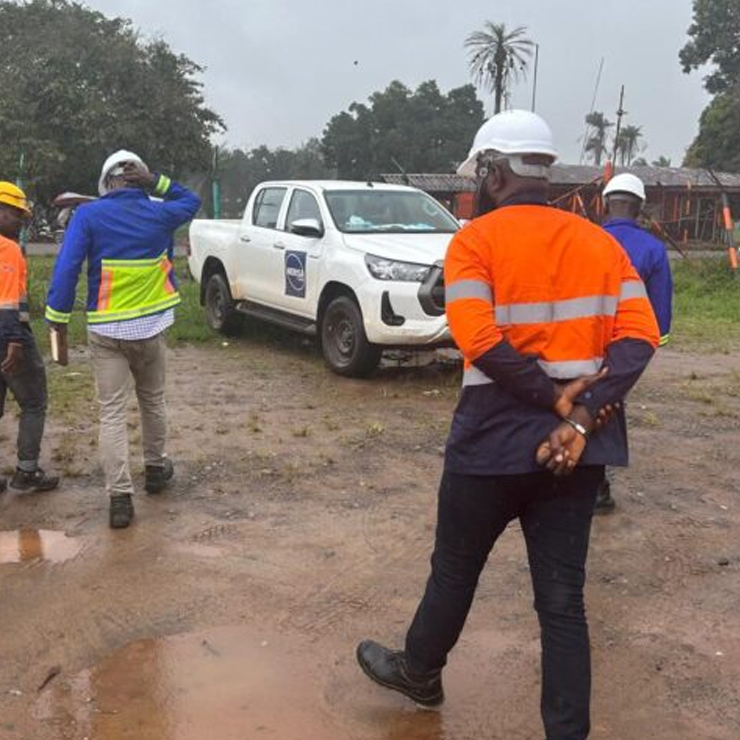
2024 ITN Distribution Campaign
Donor(s) Plan International- Liberia/Global Fund
Year June- December 2024
Background on the Service. The Global Fund is supporting Liberia in the fight against AIDS, TB, and Malaria through different grants. For the Global Fund Malaria NFM3 grant, Plan International Liberia is a co-principal recipient (PR) of Catholic Relief Services (CRS). The two PRs are responsible for the implementation of the current malaria grant running from July 2021 to June 2024. Plan International Liberia in the grant implementation is responsible for the community component targeting hard-to-reach communities in six counties where Plan is directly implementing integrated community case management (ICCM) activities.
In addition, Plan International Liberia in collaboration with CRS, the MOH and other partners is responsible for the Liberia 2024 Global Fund-supported ITN mass distribution campaign in the malaria grant across all 15 counties in Liberia. The actual ITN distribution is scheduled to take place in March 2024. Preparations leading to the actual distribution which started some time ago are ongoing with some pre-distribution activities.
Plan International Liberia will be responsible for the direct implementation of the ITN campaign in the Six (6) counties (5 counties plus 4 rural Montserrado health districts) where Pan International Liberia is implementing iCCM activities (i.e. Bomi, Maryland, Sinoe, Rural Montserrado, Nimba, and Margibi). Implementation of the ITN campaign in the remaining 10 counties (9 counties plus 3 Urban Montserrado health districts) in Liberia will be done through service providers (SPs) (i.e. selected organizations with the capability to do so.
It is against this background that Plan International Liberia in collaboration with, CRS and the MOH invites qualified organizations to submit Expressions of Interest (EOI) to serve as Service Providers (SPs) for the Liberia 2024 ITN mass distribution campaign in the remaining 10 counties (i.e. Urban Monsterrado, Grand Bassa, Bong, Gbarpolu, Grand Cape Mount, Grand Geddeh, Grand Kru, Lofa, River Gee, and Rivercess). The period of engagement for providing the required services is August 2023 – April 2024. Page 1 of 5 Page 2 of 5 It is important to underscore that the Global Fund grant is complementary and the potential SPs should not expect to run their offices using GF grant funds. The selected SPs are expected to have core funding sources and the ITN campaign implementation engagement will only cover direct and basic SP administrative costs related to the management and implementation of the ITN campaign activities.
When approved, the selected organization(s) will carry out activities as SPs for which funds for specific activities will be disbursed to them based on acceptable Global Fund conditions that will be spelt out in the service contract the organization(s) will sign with Plan International Liberia. Plan International Liberia may in addition to the SP selection process carry out partnership assessment for selected organizations using Plan’s standard partnership assessment tool. As SPs, the organization(s) will be responsible for managing and implementing the assigned ITN campaign activities and resources, including management of sub-service providers, monitoring of the implementation of the campaign against approved plans, request for disbursement of funds from Plan International Liberia, and preparation of periodic programmatic and financial reports and submitting such reports to Plan International Liberia within set deadlines.
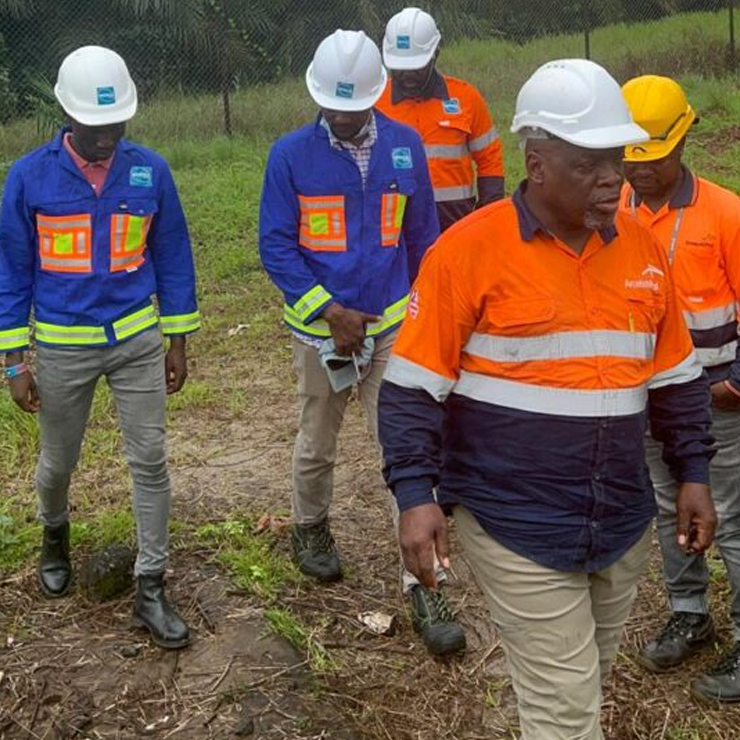
Assessment of Sustainable Financing Option & Gender Sensitive Business and Investment Plans for NW Liberia Landscape: Conservation International (CI)
Year: June-October 2024
Background
Conservation International (CI) has been protecting nature for the benefit of all for over 30 years. Through science, policy, and partnerships, CI is helping build a healthier, more prosperous, and more productive planet. CI is a global organization that has been active in Liberia for about 20 years, working closely with communities, the private sector, government, and civil society leaders to support conservation and sustainable development. Liberia is at a vital point in its development history with an enormous wealth of natural resources. It has an opportunity to encourage investors and promote development initiatives that support economic growth and development while maintaining Liberia’s critical natural capital for future generations. Proper stewardship of Liberia’s resources may prove to be the key to the future well-being of the Liberian people.
To this end, CI Liberia, in collaboration with the Environment Protection Agency (EPA,) is implementing a Global Environment Facility (GEF) funded Food Systems, Land Use, and Restoration (FOLUR)Project.
Project Overview
The Project is based on the growing recognition that food production systems and land use must improve for the benefit of peoples' health, planet, and economies. The FOLUR project titled "Reducing deforestation from palm oil and cocoa value chains,” aims "to promote biodiversity conservation and sustainable food systems for enhanced livelihood opportunities in Northwest Liberia Landscape through land use planning, restoration of degraded lands, and strengthening governance, policies, and market incentives for nationally replicable models of deforestation-free cocoa and palm oil value chains."
The FOLUR project is being implemented in the Northwest (NW) Liberia landscape (Grand Cape Mount, Bong, Bomi, Lofa, and Gbarpolu) Counties by Conservation International in partnership with Fauna and Flora International (FFI), Royal Society for the Protection of Birds (RSPB), and Society for the Conservation of Nature of Liberia (SCNL).
The project has four components, and they are as follows:
Component 1: Development, adoption, and implementation of National and NW Liberia Landscape
Component 2: Promotion of sustainable production practices for food crops, palm oil, and cocoa, supported by responsible value chains.
Component 3: Biodiversity loss reduction and restoration of natural habitats.
Component 4: Coordination, collaboration, and Monitoring and Evaluation.
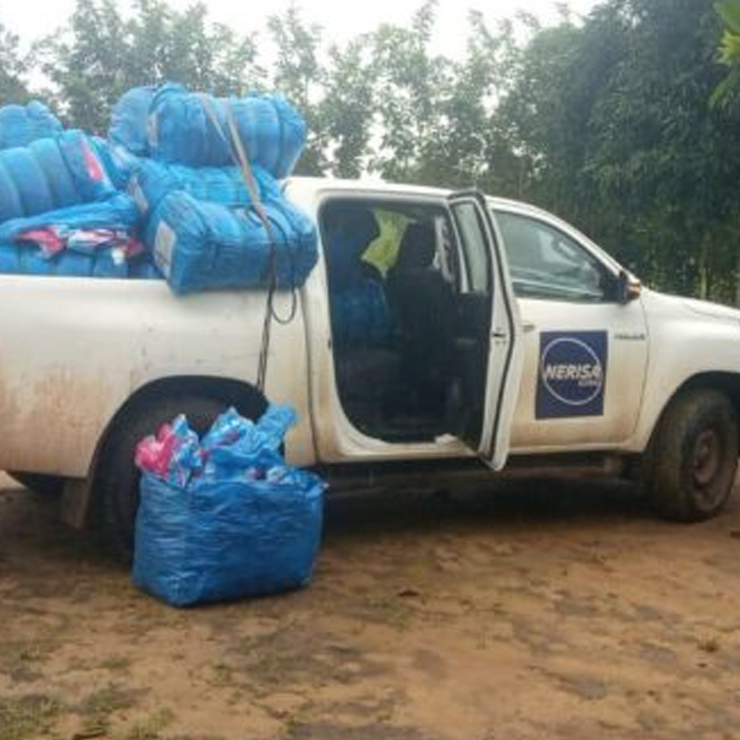
February- May 2024
The Ministry of Agriculture (MOA) is implementing the Tree Crop Extension Project (TCEP) with funding from the International Fund for Agricultural Development (IFAD), including support from ASAP for climate-resilience activities. The project is designed to reach 11,000 beneficiaries including 8,000 smallholder cocoa producers who are members of kuu groups and Farmer Field Schools (FFS); 2,400 farmers who will benefit from access to roads, input supply and market linkages and 600 farmers who will benefit as a result of job creation along the value chain. The development objective is to improve the incomes and climate change resilience of smallholder cocoa producers in Nimba County.
The project objective will be accomplished through the following four components:
Component 1: Revitalization of Cocoa Plantation - This component is aimed at increasing quantity and quality of cocoa sold and higher price received by smallholders. Under this component the project will rehabilitate 8,000 ha of cocoa plantation following value chain model; establish and operate a national seed station to guaranteed availability of improved climate resilience planting materials to farmers; mobilize and organize 320 kuu groups of 25 persons and FFS to reach 8,000 farmers; establish 320 village nurseries and supply improved hybrid seeds/seedlings, equipment, tools and solar driers to smallholder farmers; train 8,000 farmers in crop husbandry techniques, disease control, harvesting, post-harvesting handling, grafting and identification of suitable cocoa germplasm using the FFS approach; and diversification of cocoa farms following their revitalization with valuable trees and food crops, specifically banana/plantain, will be pursued for food security, climate resilience and smoothening of cash flow, while simultaneously increasing the role of women in the farming economy.
Component 2: Rehabilitation and Maintenance of Existing Farm-to-Market Roads - This Component is aimed at improving access to markets and reduced transportation costs. Under this component, the project will rehabilitate 200 km of existing farm-to-market roads and establish a viable road maintenance program. Regarding maintenance, TCEP will have a three-pronged approach that includes: (i) capacity building in road maintenance targeting youth brigades; (ii) improvement of the roads maintenance strategy, including development of a financing mechanism; (iii) transition financing of maintenance on a cash-for-work basis
Component 3: Service Provision for Value Chain Development - This component is aimed at improving service provision to cocoa farmers for Value Chain Development. Under this component the project will strengthen and/or build institutional capacity of eight (8) farmers ’ cooperatives, LACRA, CDA, CARI, LNFCS and MOA at county and district levels; support CAC and DAOs to carry out their activities; construct and/or refurbish eight (8) offices and warehouses of cooperatives; and provide working capital on basis of business plan. This component will also ensure that climate change adaptation will be mainstreamed in the technical support systems for cocoa value chain development, policy dialogue, and monitoring of deforestation in the cocoa sector.
Component 4: Project Management and Coordination - This Component is aimed at ensuring an effective and efficient strategic and operational planning, implementation, monitoring and evaluation as well as knowledge management. Under this component the project will recruit professional and support staff to form the Project Implementation Unit (PIU); ensure effective administrative, financial and technical planning and implementation of the project including audit and reporting; ensure an efficient coordination amongst the components of the project and between partners within and outside MOA; conduct supervision mission, baseline survey, midterm review and end line survey; TCEP Outcome Survey; and technical and financial progress reporting (monthly, quarterly, annually, etc.).
The project is being implemented in eight (8) districts in Nimba County over a period of six (6) years (2017-2023). The project has adopted a value chain approach to link cocoa farmers, organized at grassroots level in traditional community-based labor groups and FFS, to markets and services through cooperatives and Private Sector Partners (PSPs).
The Tree Crop Extension II (TCEP II) is currently at its Mid-Term to completion. Hence, as per the IFAD Core Outcome Indicators (COIs) guidelines, it is mandatory for IFAD-funded projects to conduct baseline, mid-term, and completion surveys based on the COI methodology. The COIs guidelines became effective in 2019 replacing the Results and Impact Management System (RIMS), which is based on Annual Outcome Survey (AOS) methodology. IFAD COIs survey results are used to:
(iii). (iii). Conduct economic benefit analysis as the result of the project intervention
The main purpose of the TCEP End-line Survey is to assess and evaluate the progress and achievements made by the project in reaching its development objective and results as specified in the project design report and log-frame, based on the outcome indicators compared to their targets, and the overall goal of the project. Further, the survey will develop specific tools to assess the economic benefits generated as the result of the project. To this end, the survey will focus on collecting and analyzing in a systematic way all information needed to assess not only the overall performance of the project, but also an approach used to access the overall implementation of project activities designed to achieve the assigned objectives. This TCEP End-line Survey will enable stakeholders to identify key achievements, challenges and recommendations on the project implementation, as well sustainability issues, and inform decisions on future intervention.


